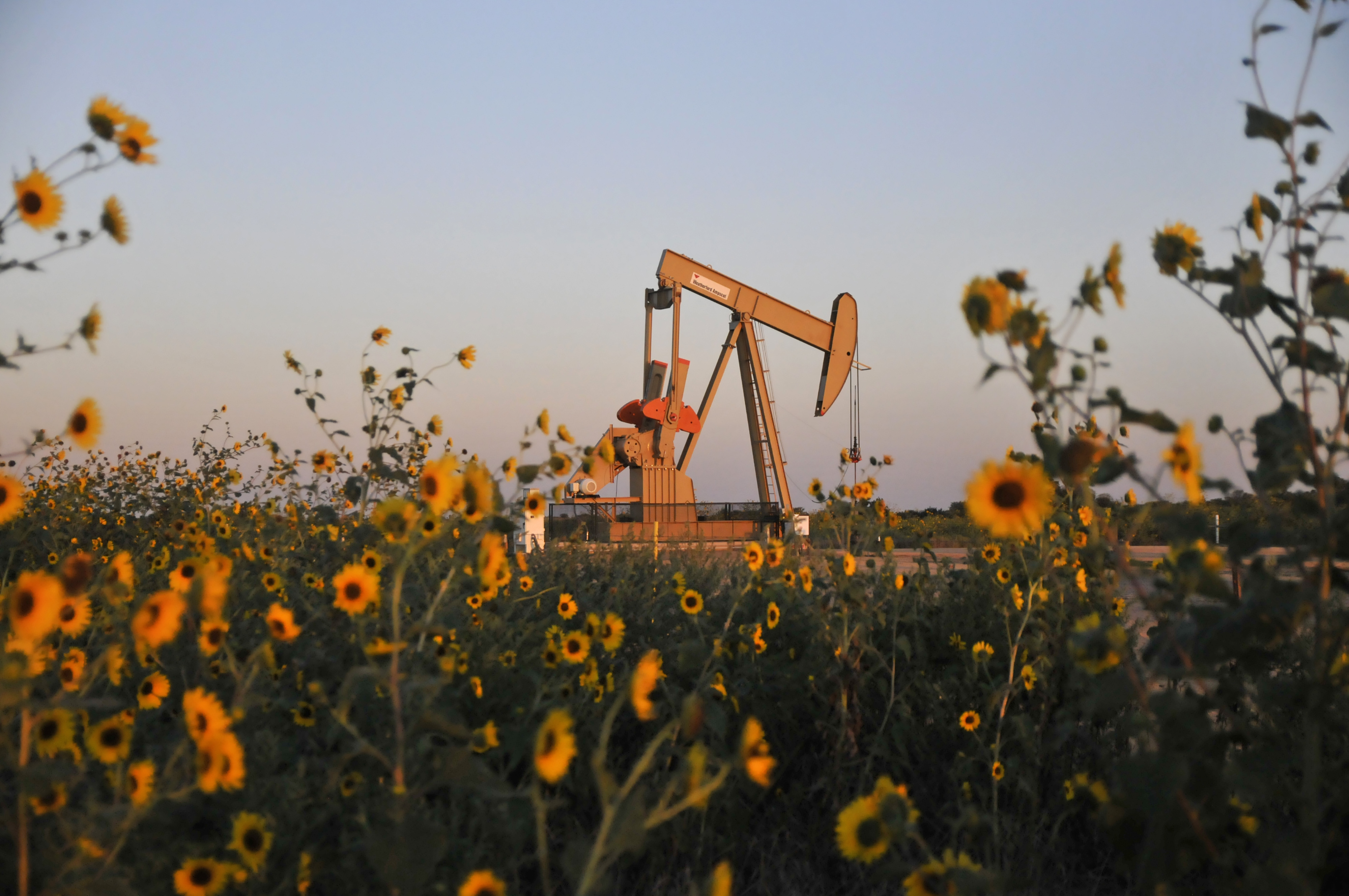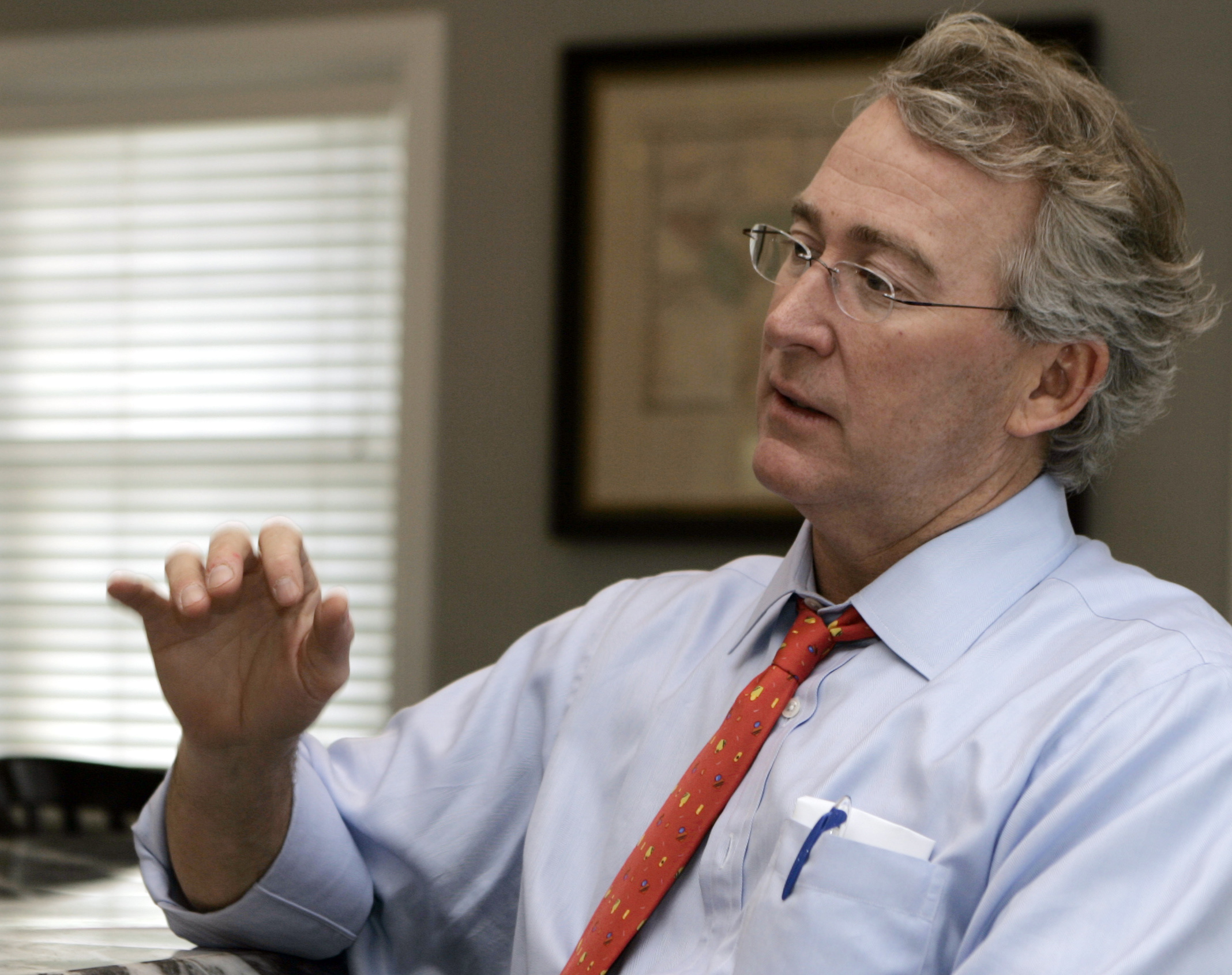A fracking pioneer's legacy
As an early champion of fracking, Aubrey McClendon helped unlock vast new sources of U.S. energy

A free daily email with the biggest news stories of the day – and the best features from TheWeek.com
You are now subscribed
Your newsletter sign-up was successful
The smartest insight and analysis, from all perspectives, rounded up from around the web:
"It was a tragic end to a life that epitomized the winner-takes-all spirit of American capitalism," said The Economist. Aubrey McClendon, one of the pioneers of the U.S. fracking revolution, died this month in a fiery car crash just hours before he was due in court to face federal antitrust charges. As an early champion of horizontal drilling and fracking, McClendon helped unlock vast new sources of U.S. energy, turning Chesapeake Energy — the company he founded in 1989 — into the country's second-largest producer of natural gas, worth a peak of $35 billion in 2008. But the shale revolution McClendon helped create ultimately proved to be his undoing. The surge in gas production led to a collapse in prices, and in 2013, he was ousted as Chesapeake's CEO by disgruntled investors. On March 1 this year, McClendon was indicted for rigging bids on oil-drilling rights back in the 2000s. The next day, the 56-year-old drove into a concrete embankment on the outskirts of his native Oklahoma City.

Until his death, McClendon was neck-deep in the kind of brash deal-making that defined his career, said Clifford Krauss at The New York Times. After being forced out of Chesapeake, he "almost immediately" began to build another oil and natural gas empire, hoping to develop shale fields in countries like Australia and Argentina. Just as he had at Chesapeake, McClendon borrowed heavily to finance these risky bets. But as energy prices kept tanking, the prospects for his second act diminished. Then came the federal antitrust charges. It's unclear whether McClendon's death was intentional, but in the days leading up to his demise, "the pressure on him had become unrelenting."
The Week
Escape your echo chamber. Get the facts behind the news, plus analysis from multiple perspectives.

Sign up for The Week's Free Newsletters
From our morning news briefing to a weekly Good News Newsletter, get the best of The Week delivered directly to your inbox.
From our morning news briefing to a weekly Good News Newsletter, get the best of The Week delivered directly to your inbox.
"I'm having trouble thinking of any other person who has had as much impact on the global economy over the past decade as Aubrey McClendon," said Justin Fox at Bloomberg View. As the man "who led the company that led the fracking boom," McClendon paved the way for the U.S. to end its dependence on foreign oil. His success also helped end "coal's long, dirty reign as the country's main source of electrical power." And yet, outside his hometown and the industry he helped remake, McClendon's legacy has gone mostly unheralded. It's true that McClendon had a "dark side," which included being a "profligate spender of his company's money and a reckless gambler with its fortunes." But Apple and Microsoft also both lost major antitrust cases without denting the reputations of Steve Jobs and Bill Gates. "Drilling holes in the ground" may not generate the same kind of public admiration as running a tech giant, but make no mistake, "Aubrey McClendon changed the world."
Let's not ignore the noxious aspects of McClendon's legacy, said Alleen Brown at The Intercept. "Fracking has become synonymous with environmental crime: earthquakes, bad air, and fouled water." As the technique's "No. 1 pitchman," McClendon somehow managed to convince policymakers and the public that fracking could be the solution to global warming, even though natural gas's "climate-warming emissions rival those of coal." All the while, McClendon's company minted money, and gobbled up millions of acres of drilling leases as regulators struggled to keep up. "Mutilated landscapes in Oklahoma, Texas, Michigan, Ohio, and Pennsylvania will long bear his fingerprints."
A free daily email with the biggest news stories of the day – and the best features from TheWeek.com
-
 Political cartoons for February 18
Political cartoons for February 18Cartoons Wednesday’s political cartoons include the DOW, human replacement, and more
-
 The best music tours to book in 2026
The best music tours to book in 2026The Week Recommends Must-see live shows to catch this year from Lily Allen to Florence + The Machine
-
 Gisèle Pelicot’s ‘extraordinarily courageous’ memoir is a ‘compelling’ read
Gisèle Pelicot’s ‘extraordinarily courageous’ memoir is a ‘compelling’ readIn the Spotlight A Hymn to Life is a ‘riveting’ account of Pelicot’s ordeal and a ‘rousing feminist manifesto’
-
 The pros and cons of noncompete agreements
The pros and cons of noncompete agreementsThe Explainer The FTC wants to ban companies from binding their employees with noncompete agreements. Who would this benefit, and who would it hurt?
-
 What experts are saying about the economy's surprise contraction
What experts are saying about the economy's surprise contractionThe Explainer The sharpest opinions on the debate from around the web
-
 The death of cities was greatly exaggerated
The death of cities was greatly exaggeratedThe Explainer Why the pandemic predictions about urban flight were wrong
-
 The housing crisis is here
The housing crisis is hereThe Explainer As the pandemic takes its toll, renters face eviction even as buyers are bidding higher
-
 How to be an ally to marginalized coworkers
How to be an ally to marginalized coworkersThe Explainer Show up for your colleagues by showing that you see them and their struggles
-
 What the stock market knows
What the stock market knowsThe Explainer Publicly traded companies are going to wallop small businesses
-
 Can the government save small businesses?
Can the government save small businesses?The Explainer Many are fighting for a fair share of the coronavirus rescue package
-
 How the oil crash could turn into a much bigger economic shock
How the oil crash could turn into a much bigger economic shockThe Explainer This could be a huge problem for the entire economy